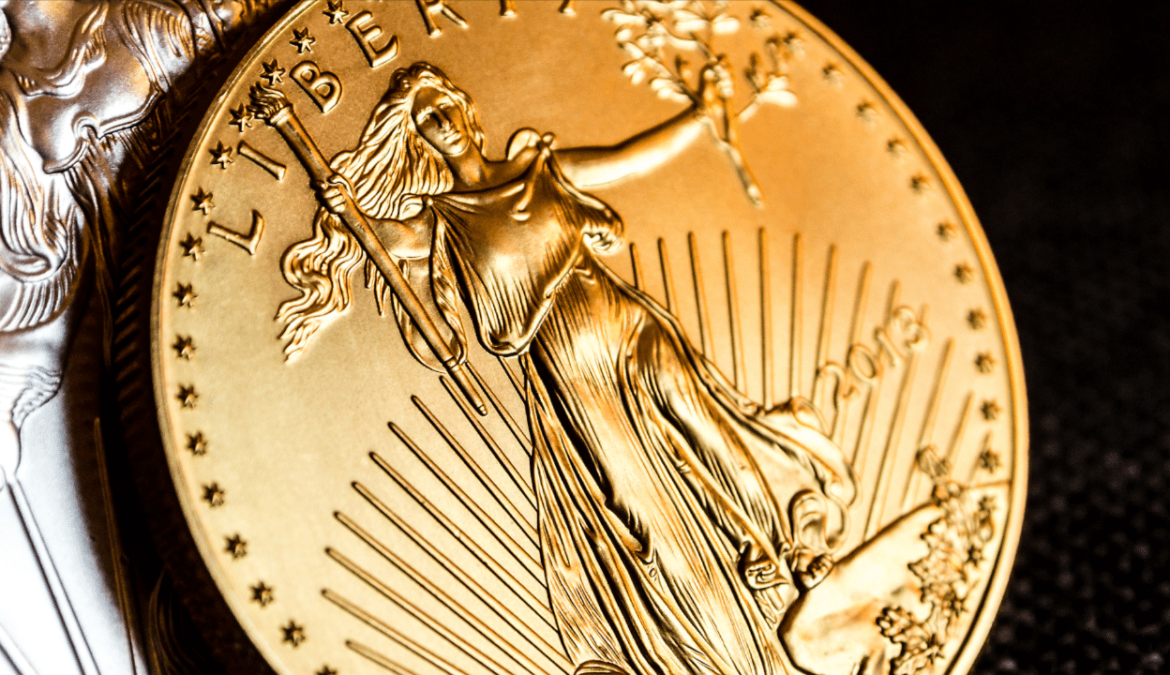COLUMBIA, S.C. (Dec 10, 2020) – Three bills prefiled in the South Carolina House would take important steps toward treating gold and silver as money instead of commodities, and would set the stage to undermine the Federal Reserve’s monopoly on money.
Rep. Stewart Jones (R-Laurens) filed all three bills.
House Bill 3377 (H3377) would make gold and silver coins legal tender in the state. Under the proposed law, “gold and silver coins minted foreign or domestic shall be legal tender in the State of South Carolina under the laws of this State. No person or other entity may compel another person or other entity to tender or accept gold or silver coin unless agreed upon by the parties.”
Practically speaking, this would allow South Carolina residents to use gold or silver coins to pay taxes and other debts owed to the state. In effect, it would put gold and silver on the same footing as Federal Reserve notes.
The phrase, “unless agreed upon by the parties” has important legal ramifications. This wording reaffirms the court’s ability, and constitutional responsibility according to Article I, Section 10, to require specific performance when enforcing such contracts. If voluntary parties agree to be paid, or to pay, in gold and silver coin, South Carolina courts could not substitute any other thing, e.g. Federal Reserve Notes, as payment.
South Carolina could become the fourth state to recognize gold and silver as legal tender. Utah led the way, reestablishing constitutional money in 2011. Wyoming and Oklahoma have since joined.
The effect has been most dramatic in Utah where United Precious Metals Association (UMPA) was established after the passage of the Utah Specie Legal Tender Act and the elimination of all taxes on gold and silver. UPMA offers accounts denominated in U.S.-minted gold and silver dollars. The company also recently released the “Utah Goldback.” UPMA describes it as “the first local, voluntary currency to be made of a spendable, beautiful, physical gold.”
KNOCKING DOWN BARRIERS
Taxes on gold and silver erect barriers to using gold and silver as money by raising transaction costs. House Bill 3378 (H3378) would effectively exempt gold, silver and platinum bullion from state capital gains taxes. Passage of this legislation would eliminate a significant barrier to using gold and silver in everyday transactions, a foundational step for people to undermine the Federal Reserve’s monopoly on money.
South Carolina has already repealed the sales tax on gold and silver. That removed one barrier to using gold and silver in everyday transactions. Passage of H3378 would remove another barrier.
With the passage of H3378, South Carolina would take a step toward treating gold, silver and platinum as money instead of a commodity. As Sound Money Defense League policy director Jp Cortez testified during a committee hearing on a similar bill in Wyoming in 2018, charging taxes on money itself is beyond the pale.
“In effect, states that collect taxes on purchases of precious metals are inherently saying gold and silver are not money at all.”
Imagine if you asked a grocery clerk to break a $5 bill and he charged you a 35 cent tax. Silly, right? After all, you were only exchanging one form of money for another. But that’s essentially what South Carolina’s capital gains tax on gold and silver bullion does. By eliminating this tax on the exchange of gold and silver, South Carolina would treat specie as money instead of a commodity. This represents a small step toward reestablishing gold and silver as legal tender and breaking down the Fed’s monopoly on money.
“We ought not to tax money – and that’s a good idea. It makes no sense to tax money,” former U.S. Rep. Ron Paul said during testimony in support an Arizona bill that repealed capital gains taxes on gold and silver in that state. “Paper is not money, it’s fraud,” he continued.
GOLD BULLION DEPOSITORY
Stewart also prefiled House Bill 3379 (H3379). This joint resolution would create a study committee to determine the feasibility and efficacy of the establishment of a bullion repository in this state to store gold, silver, and other metals for the state’s reserves and for investments. The committee would be required to issue a report of its findings to the General Assembly by January 15, 2022.
South Carolina has a model it could follow. In the summer of 2015, Texas Gov. Doug Abbot signed a law creating a state gold bullion and precious metal depository in his state. The depository received its first deposits in the summer of 2018. The facility will not only provide a secure place for individuals, businesses, cities, counties, government agencies and even other countries to store gold and other precious metals, the law also creates a mechanism to facilitate the everyday use of gold and silver in transactions. In short, a person will eventually be able to deposit gold or silver – and pay other people through electronic means or checks – in sound money.
A state gold repository also creates an avenue toward financial independence. Countries around the world, including China, Russia and Turkey, have been buying gold to limit their dependence on the U.S. dollar. University of Houston political science professor Brandon Rottinghaus said a state depository can serve a similar function for Texas.
“This is another in a long line of ways to make Texas more self-reliant and less tethered to the federal government. The financial impact is small but the political impact is telling, Many conservatives are interested in returning to the gold standard and circumvent the Federal reserve in whatever small way they can.”
The Tennessee legislature passed a resolution declaring support for the creation of a gold bullion depository in the Volunteer State back in 2016, but never followed up with any legislation. If South Carolina does create a study committee, it will be imperative to follow up with further legislation to actually establish a repository once the report is issued.
BACKGROUND
The United States Constitution states in Article I, Section 10, “No State shall…make any Thing but gold and silver Coin a Tender in Payment of Debts.” Currently, all debts and taxes in South Carolina are either paid with Federal Reserve Notes (dollars) which were authorized as legal tender by Congress or with coins issued by the U.S. Treasury — very few of which have gold or silver in them.
The Federal Reserve destroys this constitutional monetary system by creating a monopoly based on its fiat currency. Without the backing of gold or silver, the central bank can easily create money out of thin air. This not only devalues your purchasing power over time; it also allows the federal government to borrow and spend far beyond what would be possible in a sound money system. Without the Fed, it the U.S. government wouldn’t be able to maintain all of its unconstitutional wars and programs. The Federal Reserve is the engine that drives the most powerful government in the history of the world.
Passage of H3377 would reestablish gold and silver as legal tender in the state and take a step toward that constitutional requirement, ignored for decades in every state. Passing H3378 would remove one of the tax barriers that hinder the use of gold and silver as money.
Passage of both bills would also begin the process of abolishing the Federal Reserve system by attacking it from the bottom up – pulling the rug out from under it by working to make its functions irrelevant at the state and local levels, and setting the stage to undermine the Federal Reserve monopoly by introducing competition into the monetary system.
Constitutional tender expert Professor William Greene said when people in multiple states actually start using gold and silver instead of Federal Reserve Notes, it would effectively nullify the Federal Reserve and end the federal government’s monopoly on money.
“Over time, as residents of the state use both Federal Reserve notes and silver and gold coins, the fact that the coins hold their value more than Federal Reserve notes do will lead to a “reverse Gresham’s Law” effect, where good money (gold and silver coins) will drive out bad money (Federal Reserve notes). As this happens, a cascade of events can begin to occur, including the flow of real wealth toward the state’s treasury, an influx of banking business from outside of the state – as people in other states carry out their desire to bank with sound money – and an eventual outcry against the use of Federal Reserve notes for any transactions.”
Once things get to that point, Federal Reserve notes would become largely unwanted and irrelevant for ordinary people. Nullifying the Fed on a state by state level is what will get us there.
WHAT’S NEXT
All three bills will be officially introduced when the South Carolina legislature convenes on Jan. 12. H3377 will be referred to the House Judiciary Committee. H3378 and H3379 will be referred to the House Ways Means Committee. Each bill will have to pass committee by a majority vote before moving forward in the legislative process.
Originally appeared in Tenth Amendment Center.


